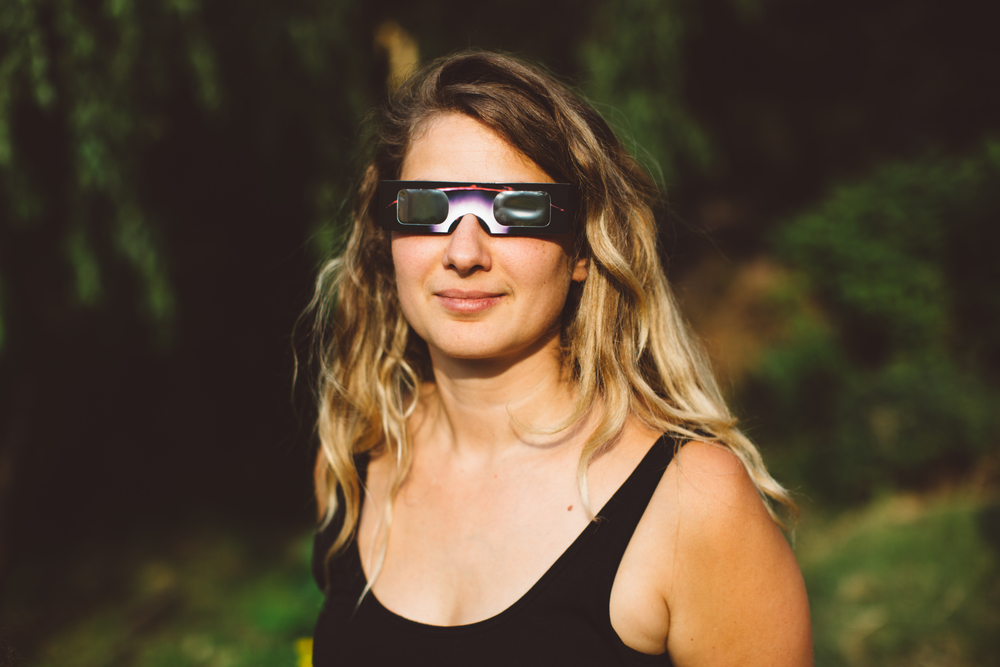
A solar eclipse will be visible in Western Australia on Thursday, 20 April 2023.
A solar eclipse will be visible in Western Australia on Thursday, 20 April 2023. Exmouth and surrounds will experience a total solar eclipse (100 per cent) at 11:29:50am for 54 seconds. Perth will experience a partial solar eclipse (77 per cent) which will peak at around 11:20am. The exact time of the eclipse will vary depending on your location.
Download the information on this page as a printable flyer

What is a solar eclipse?
A solar eclipse occurs when the moon passes between the sun and the earth, and the moon’s shadow falls on the earth.
How to protect your eyes
Never look at the sun with the naked eye. Looking at the sun before, during or after the eclipse can cause serious and permanent damage to your eyes and vision. Even a brief glance at the sun can cause irreversible loss of sight.
Children and teenagers are most at risk. Educate them about the dangers and supervise them closely during the eclipse to ensure they don’t look directly at the sun.
The only way to guarantee that you don’t damage your eyes is to view the eclipse indirectly, using a pinhole viewer or by watching it online or on television.
Direct viewing of a solar eclipse may potentially be performed through the correct use of approved eclipse glasses or handheld viewers. The use of eclipse glasses and viewers carries certain risks.
 |
 |
If you decide to use eclipse glasses or handheld viewers, it is essential to note the following points:
- Make sure they meet the international safety standard for eclipse glasses and viewers, which is known as ISO 12312-2. This should be clearly stated on the item and its packaging. If it’s not stated, do not use it.
- Purchase them from a reputable seller to make sure they are not counterfeit. A list of reputable vendors is provided in the links at the end of this advice.
- Even if your glasses or viewer states that they meet the ISO standard, it is recommended that you visit the manufacturer’s website to confirm that there are no changes or updates to the certification of the product.
- Check the lenses for damage such as scratches, cracks or holes. If they appear damaged, don’t use them.
- Eclipse glasses and viewers should be worn or used over your distance glasses, if you normally wear these. Make sure eclipse glasses fit your face. Adjust for children so there are no gaps to let light in.
- Test eclipse glasses and viewers by putting them on and looking at a lamp or normal light. They should block out all light, except from the sun. If you can see a lightbulb through them, don’t use them.
- Turn away from the sun before putting them on, and before taking them off.
It is never safe to look at a partial eclipse, or the partial phases of a total eclipse, without approved eye protection. Eye protection must be used for the full duration of the eclipse with the only exception being as described in the paragraph below.
A total solar eclipse may safely be watched without eye protection, but only during the brief period while the moon completely covers the sun (the period of totality). This will occur in an approximately 40 kilometre wide path that crosses North West Cape in Western Australia in the vicinity of the town of Exmouth. This will occur just before 11:30am and last for only about one minute. Eclipse glasses and viewers may be removed when the moon completely covers the sun and it suddenly gets dark. Just prior to the sun reappearing, eclipse glasses and viewers must be replaced, to keep observing the remaining partial eclipse. The path and exact timing of the eclipse can be viewed with this online map.
It is unsafe to view the eclipse through sunglasses, mobile phones, cameras, telescopes, binoculars or using a mirror.
How does looking at the sun damage your eyes?
The retina is the thin layer of tissue at the back of the eye that receives light and sends information to the brain via the optic nerve, enabling you to see. Looking directly at the sun, even for just a few seconds, can cause permanent damage to the retina. This damage is known as solar retinopathy.
Solar retinopathy happens quickly with no pain or warning and can cause permanent loss of central vision. There is no treatment or cure.
What to do if you are worried about your eyes after the eclipse
If you have blurry vision, loss of central vision or are worried about your eyes after the eclipse, make an appointment as soon as possible with your ophthalmologist, optometrist or a doctor. The Lions Eye Institute can be contacted on (08) 9381 0777.
More information
Download the information on this page as a printable flyer
WA Department of Health solar eclipse webpage
WA Department of Health solar eclipse videos: featuring Associate Professor Hessom Razavi from the Lions Eye Institute
Royal Australian and New Zealand College of Ophthalmologists (RANZCO) position statement
Reputable vendors of eclipse glasses and handheld viewers
Astronomical Society of Australia
Map of the eclipse path (use this clickable map to determine the exact time of the eclipse for your location)



